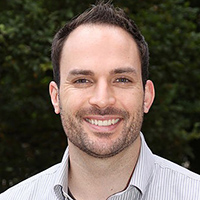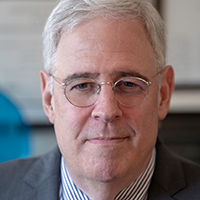INS / IEEE Brain presents'I Am Human' Film Screening and Panel DiscussionAs researchers develop new brain implants and continue to unlock the secrets of the brain, society is forced to consider what it means to be human. Will the brain technologies used today in medicine eventually lead to super human abilities or to a revolution of our sense of self? To explore these challenges and the ethical issues raised by advances in brain science, IEEE Brain and the International Neuroethics Society organized a virtual film screening and panel discussion looking at the feature documentary 'I am Human,' which premiered at the 2019 Tribeca Film Festival. The film explores the co-evolution of humans and technology by following three subjects with implantable brain interfaces and the ethical implications of this technology on society. Our panel of experts met on December 2 to discuss various technological and ethical issues raised in the film and address questions submitted by participants. Panelists included:
Panel DiscussionWednesday, December 2, 2020 Film PreviewPanelistsNita FarahanyDuke Law School Nita A. Farahany is a leading scholar on the ethical, legal, and social implications of biosciences and emerging technologies, particularly those related to neuroscience and behavioral genetics. She is a frequent commentator for national media and radio shows, and is interviewed in the ‘I Am Human’ documentary. Farahany is a Professor of Law & Philosophy, the Founding Director of Duke Science & Society, and Chair of the Duke MA in Bioethics & Science Policy. She is the current president of the International Neuroethics Society, and serves as a member of the Neuroethics Division of the Multi-Council Working Group for the BRAIN Initiative, and on the President’s Research Council of the Canadian Institute for Advanced Research (CIFAR). She also serves on Global Agenda Councils and is part of the Expert Network for the World Economic Forum. In 2010, Farahany was appointed by President Obama to the Presidential Commission for the Study of Bioethical Issues, and served until 2017. Jennifer FrenchNeurotech Network  Jennifer French, MBA, is the founder of Neurotech Network, a nonprofit organization that intently tracks the neurotechnology industry, gains end-user feedback and coordinates patient engagement initiatives. French is also a Consultant and Contributing Editor of Neurotech Reports, a leading news publication and market analysis firm for the neurotechnology industry. In the past, she has helped launch successful divisions is such organizations as Bombardier Capital and PC Connection, Inc. as well as several not-for-profit organizations. More recently, she has been working with neurotech companies of various stages toward their commercialization efforts. Jennifer has been featured in several media outlets and is an accomplished writer and speaker who has addressed organizations, such as the National Academy of Sciences, the World Science Festival, and TEDx Talks to name a few. She serves on several advisory boards including the IEEE Neuroethics initiative, NINDS Common Data Elements, DOD CDMRP Spinal Cord Injury Research Program, the Brown Institute for Brain Science, and the American Bionics Project. Jennifer lives with tetraplegia due to a spinal cord injury. She is a silver medalist from the 2012 Paralympic Games and is the 2012 Rolex Yachtswoman of the Year; the first woman with a disability to receive this distinction. She is the Co-Founder of the Warrior Sailing Program, a maritime education program for wounded, ill, and injured service members through the USMMA Sailing Foundation. Jennifer is also the co-founder and current VP of the North American Spinal Cord Injury Consortium. She is the author of On My Feet Again (2013), her personal story of rehabilitation using neurotechnology and Bionic Pioneers (2014), a collection of personal experiences of neurotechnology end-users. Jacob RobinsonRice University  Jacob Robinson is an Associate Professor in Electrical & Computer Engineering and Bioengineering at Rice University, and an Adjunct Associate Professor in Neuroscience at Baylor College of Medicine. His research group uses nanofabrication technology to create miniature devices to manipulate and monitor neural circuit activity. He received a B.S. in Physics from UCLA in 2003 and a Ph.D. in Applied Physics from Cornell University in 2008. He then began a postdoctoral research position in the Department of Chemistry and Chemical Biology at Harvard University, where he created silicon nanowire devices to probe the electrical and chemical activity of living cells. In 2012, he joined the ECE and BioE departments at Rice. Dr. Robinson is a performer on several DARPA neurotech and bioelectronics programs and currently leads one of the N3 teams creating non-surgical neural interfaces. Dr. Robinson is the recipient of the DARPA Young Faculty Award, the Materials Today Rising Star Award, and is a Senior Member of IEEE. He currently serves as the co-chair of the IEEE Brain Initiative and a core member of the IEEE Brain Neuroethics working group. Joseph J. FinsWeill Cornell Medical College Dr. Joseph J. Fins is The E. William Davis, Jr. M.D. Professor of Medical Ethics and Chief of the Division of Medical Ethics at Weill Cornell Medical College. His recent books include 'Rights Come to Mind: Brain Injury, Ethics and The Struggle for Consciousness' (Cambridge University Press, 2015) and 'A Palliative Ethic of Care: Clinical Wisdom at Life’s End' (Jones and Bartlett, 2006). Dr. Fins is also a co-author of the 2007 Nature paper describing the first use of deep brain stimulation (DBS) in the minimally conscious state, and is currently a co-investigator on an NIH BRAIN Initiative grant studying DBS in severe to moderate traumatic brain injury and principal investigator on an RO1 entitled, 'Cognitive Restoration: Neuroethics and Disability Rights.' A developer of clinical pragmatism as a method of moral problem solving for medicine, Professor Fins' current scholarly interests include: ethical and policy issues in brain injury and disorders of consciousness; civil and disability rights for individuals with severe brain injury; palliative care; research ethics in neurology and psychiatry; medical education; methods of ethics case consultation; the history of medicine; and bioethics in the Spanish-speaking world. OrganizersThe International Neuroethics Society is an interdisciplinary group of scholars, scientists, clinicians, and other professionals dedicated to encouraging and inspiring research and dialogue on the responsible use of advances in brain science. People at all stages of their career join the Society to interact, learn, and participate in dynamic discussions that further the growing field of neuroethics. Institute of Electrical and Electronics Engineers (IEEE) is the world’s largest technical professional organization dedicated to advancing technology for the benefit of humanity. IEEE Brain was formed in late 2015 to help facilitate cross-disciplinary collaboration and coordination to advance research, standardization, and development of technologies in neuroscience to help improve the human condition. Join the IEEE Brain community to gain access to valuable information and resources, and to connect and interact with others in this dynamic multidisciplinary community. PromotionThis package contains images and descriptions to use in newsletters and social media posts promoting the event. Download and unzip the package to view. Promotion Assets (ZIP)LegalThis event will be recorded. Review the policies, terms and conditions that pertain to this event. Register |


